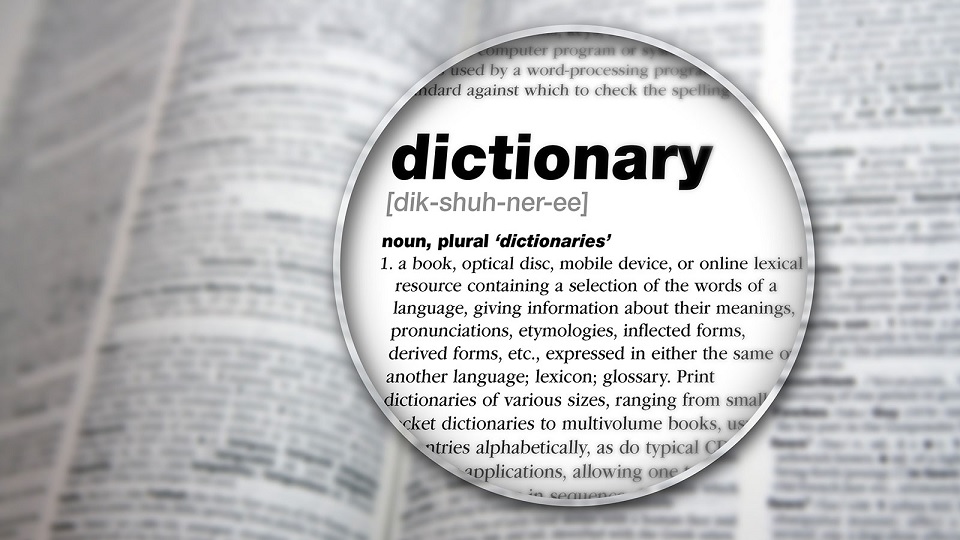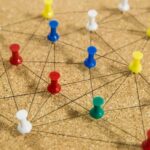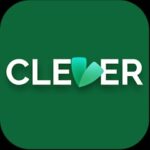Dictionaries have been essential tools for language comprehension, vocabulary building, and overall linguistic growth for centuries. They offer clear definitions, word origins, pronunciations, and more. In today’s digital age, dictionaries have expanded beyond traditional language dictionaries to include specialized dictionaries for various fields like medicine, technology, law, and more. This article explores dictionaries in depth, examining different types of dictionaries, their benefits, and how they have evolved over time.
Table of Contents
What is a Dictionary?
A dictionary is a reference book or digital resource containing an alphabetical list of words, including information about their meanings, pronunciations, and other relevant details. Dictionaries serve as vital tools for language learners, writers, students, professionals, and anyone looking to enhance their vocabulary and understanding of language.
Key Features of a Dictionary
Some key features found in most dictionaries include:
- Definitions: Clear explanations of a word’s meaning.
- Pronunciation: Phonetic spelling or audio support to aid correct pronunciation.
- Usage Examples: Sentences or phrases that show the word in use.
- Etymology: Information about the word’s origin and history.
- Synonyms and Antonyms: Similar and opposite words to help expand vocabulary.
History of Dictionaries
Dictionaries have a rich history that dates back to ancient civilizations. Early dictionaries began as word lists, often developed to support language translation between cultures.
Origins of Dictionaries
The earliest known dictionaries originated in Sumer and Babylon, created as clay tablets containing vocabulary lists. During the Middle Ages, bilingual dictionaries became more common in Europe, mainly to help scholars understand Latin. The development of modern dictionaries began in the 17th century, with Samuel Johnson’s “A Dictionary of the English Language” in 1755 marking one of the most significant contributions to English lexicography.
Evolution of Dictionaries in the Digital Age
With the advent of computers and the internet, dictionaries transitioned from physical books to digital formats. Today, digital dictionaries offer quick and easy access to vast amounts of language data and provide multimedia elements such as pronunciation audio, visual examples, and even translations. Popular online dictionaries, like Merriam-Webster and Oxford, now include mobile applications, making them accessible on smartphones and tablets.
Types of Dictionaries
Dictionaries come in various types to serve different purposes. Each type of dictionary focuses on specific aspects of language or specific subject areas.
1. Language Dictionaries
Language dictionaries provide definitions, usage examples, pronunciation, and other information for general language use. Some well-known language dictionaries include:
- Oxford English Dictionary (OED): A comprehensive dictionary of the English language, providing historical development of English words.
- Merriam-Webster Dictionary: Known for its clear definitions and practical usage examples.
- Cambridge English Dictionary: Popular for learners of English as a second language.
2. Bilingual and Multilingual Dictionaries
Bilingual dictionaries translate words and phrases between two languages, while multilingual dictionaries offer translations between multiple languages. These dictionaries are essential tools for language learners and translators.
3. Specialized Dictionaries
Specialized dictionaries focus on specific fields or areas of knowledge. Some common types include:
- Medical Dictionaries: Provide definitions for medical terms, diseases, and treatments.
- Law Dictionaries: Offer definitions for legal terminology and jargon.
- Technical Dictionaries: Used in fields like engineering, computer science, and technology, covering technical terms and concepts.
4. Thesauri
While not strictly dictionaries, thesauri are reference tools that provide synonyms and antonyms. They help users find alternative words to improve writing variety and style.
5. Visual Dictionaries
Visual dictionaries use images to explain words, making them ideal for understanding concepts that are difficult to explain in text alone. Visual dictionaries are commonly used in fields like anatomy, biology, and design.
Benefits of Using a Dictionary
Dictionaries offer numerous benefits, both for native speakers and language learners. Below are some of the key advantages.
1. Vocabulary Expansion
By looking up new words in a dictionary, users can expand their vocabulary, learn synonyms and antonyms, and gain a deeper understanding of language nuances.
2. Improved Writing and Speaking Skills
A dictionary helps users find the correct words for their thoughts and expressions. This improves the quality of both written and spoken communication.
3. Enhanced Understanding of Language Rules
Dictionaries often include information on grammar, pronunciation, and word usage. This helps users understand the rules of language, making their communication more effective.
4. Quick Reference for Professional Fields
Professionals in specialized fields can use dictionaries to find precise definitions and explanations of technical terms. This ensures accuracy and clarity in fields like medicine, law, and technology.
5. Support for Language Learners
For individuals learning a new language, dictionaries provide essential resources to learn word meanings, pronunciation, and usage.
How to Use a Dictionary Effectively
Using a dictionary effectively involves more than just looking up words. Here are some tips on maximizing the benefits of a dictionary.
1. Know When to Use a Dictionary
Use a dictionary when encountering unfamiliar words or phrases, especially when reading complex texts. Developing a habit of looking up new words can lead to better comprehension.
2. Understand Pronunciation Guides
Most dictionaries use phonetic symbols to indicate pronunciation. Familiarizing yourself with these symbols will help you pronounce words correctly, especially in languages with challenging pronunciation.
3. Explore Synonyms and Antonyms
Many dictionaries include lists of synonyms and antonyms. Using these can help expand your vocabulary and find better ways to express ideas.
4. Use Examples for Context
Pay attention to example sentences provided for each word. Examples help clarify how a word is used in real-life contexts and reveal nuances that may not be clear from the definition alone.
Famous Dictionaries and Their Contributions
Some dictionaries have become iconic for their contributions to language and culture. Below are a few notable examples.
1. Oxford English Dictionary (OED)
The Oxford English Dictionary is renowned for its historical depth and etymological research. It records the history of every word in the English language, providing a comprehensive linguistic resource.
2. Webster’s Dictionary
Merriam-Webster’s dictionaries are widely used in North America and are known for their clarity and accessibility. Noah Webster, the creator, aimed to simplify and Americanize English, leading to distinct American English spellings.
3. Roget’s Thesaurus
Although not a dictionary, Roget’s Thesaurus is a popular resource for finding synonyms and antonyms. It organizes words by themes and categories, helping users find alternatives to commonly used words.
Digital vs. Physical Dictionaries
While traditional print dictionaries were the primary language resources for centuries, digital dictionaries have become the norm today. Let’s compare the advantages of both formats.
Advantages of Digital Dictionaries
- Accessibility: Available on mobile devices and computers, making them easy to use anywhere.
- Search Speed: Digital dictionaries allow users to find words instantly with search functions.
- Regular Updates: Digital dictionaries can be updated with new words and definitions faster than printed editions.
Advantages of Physical Dictionaries
- In-depth Learning: Some users prefer physical dictionaries for deeper study, as flipping through pages encourages exploration.
- No Internet Required: Physical dictionaries don’t require internet access, making them useful in offline settings.
The Future of Dictionaries
As language evolves, so do dictionaries. With the rise of artificial intelligence, dictionaries may soon feature AI-powered functionalities that offer personalized recommendations, translation capabilities, and real-time speech recognition. Additionally, collaborative dictionaries, where users contribute entries and definitions, may increase in popularity.
How AI is Shaping Modern Dictionaries
AI is playing a significant role in the development of dictionaries. Some advanced dictionaries now use AI to analyze language trends and add new words based on popular usage. This helps dictionaries stay relevant in a constantly evolving linguistic landscape.
Crowd-Sourced and Community-Based Dictionaries
Community-based dictionaries, like Urban Dictionary, allow users to submit definitions, often for slang or newly coined words. While these may lack the rigor of traditional dictionaries, they provide valuable insights into popular and cultural language.
Conclusion
Dictionaries are indispensable tools for language comprehension and development. From their historical origins to the latest AI-driven innovations, dictionaries continue to be relevant in education, communication, and professional fields. Whether you use a traditional print dictionary or a digital one, the benefits of having access to accurate word definitions and language resources are immense. Embrace the power of dictionaries to enrich your vocabulary, improve communication skills, and foster a deeper understanding of language.
This article provides a comprehensive overview of dictionaries, their types, history, and importance. Let me know if you need further modifications or additional sections.


